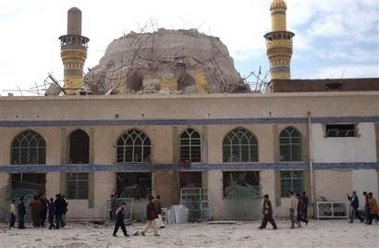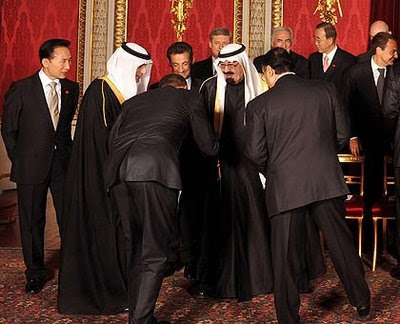 I was recently contact by a Turkish journalist, Abdullah Bozkurt, of Turkey's largest Engligh-language daily, Today's Zaman, about the possibility of Israel using Turkish airspace to attack targets in Iran. Here is the article based in part on that interview. I have highlighted portions that include my comments.
I was recently contact by a Turkish journalist, Abdullah Bozkurt, of Turkey's largest Engligh-language daily, Today's Zaman, about the possibility of Israel using Turkish airspace to attack targets in Iran. Here is the article based in part on that interview. I have highlighted portions that include my comments.
Ankara won’t allow Israel to use Turkish airspace in attacking Iran
The prospect of a surprise Israeli air strike on suspected Iranian nuclear sites using Turkish airspace would have alarming implications in the region and would certainly invite the wrath of Turkey upon Israel, a senior analyst in Ankara has said.
Speaking on the condition of anonymity because of the sensitivity of the issue, he said Turkey would never signal its willingness to accept such an air strike by the Israeli Air Force (IAF) and would immediately shoot down any aircraft violating its own space en route to Iran, which he described as a neighbor and important trading partner. “Even tacit approval of such an operation would go against everything Turkey stands for and would throw the balance of power in the region into chaos,” he stressed.
With the new administration in the US led by President Barack Obama, who openly advocates engagement and dialogue with Iran, the likelihood of such an air strike and the chance of getting US approval are slim to none. Former President George W. Bush also refused to let Israel take such an aggressive action. In his speech delivered in the Turkish capital last month, Obama attempted to pitch his policy of moderation in Iran and said Washington “seeks engagement based upon mutual interests and mutual respect.”
Although the US and Turkish opposition deem the strike an almost certain impossibility, even the remote chance of such an adventure is enough to raise concerns in Ankara as well as in numerous capitals in the Middle East. “Such an action would pit one Muslim state [Turkey] against another [Iran],” says Yılmaz Ateş, a deputy from Ankara and the deputy chairman of the Republican People’s Party (CHP), the main opposition party. Ateş told Today’s Zaman that an Israeli air strike violating Turkish airspace would have disastrous consequences.
“I do not envision Israeli aircraft in Turkish airspace without permission,” stressed Lt. Col. Rick Francona, who is a retired US Air Force intelligence officer that had worked for the National Security Agency (NSA) and the CIA. Speaking to Today’s Zaman, military analyst Francona said, “I don’t think the Turks will allow it, especially since the December 2008-January 2009 Israeli attacks in Gaza.” “That operation has put a real strain on Turkey’s relations with Israel,” he noted.
Israel mulls Turkish route to attack Iran

Israel has three routes to consider if -- a big “if” many argue -- it is willing to undertake an aerial attack on Iranian nuclear sites. The northern route entails flying from Israel to the north toward the corner of the Syrian-Turkish border, then turning east and hugging the Syrian border. The central route goes over Jordan and Iraq, while the southern route takes an attack squadron through Saudi Arabia and then to Iran via Iraq or even Kuwait.
A report released by the Center for Strategic and International Studies (CSIS), a Washington-based think tank, in March 2009 suggests that a military strike by Israel against Iranian nuclear facilities is possible and that the optimum route would be the northern one along the Syrian-Turkish border, then over a small portion of Iraq into Iran, and back along the same route. The CSIS report argues that all of the other options are deemed too risky.
Even for the northern route using Turkish airspace, the report underlines that the number of aircraft required, the logistics of refueling along the way and the ability to get to the targets without being detected or intercepted would be complex and very risky, and would lack any assurances that the overall mission would have a high success rate. The most significant challenge in terms of logistics comes from the aerial refueling, as the fuel capacity of Israeli aircraft does not allow a flight to reach a target in Iran on a single tank. According to a report last year by an Austin-based private strategic forecasting company, Stratfor, Israel already possesses significant aerial refueling capabilities. “Nevertheless, the Israeli Air Force would probably be extremely stretched in terms of these assets to attempt a bombing campaign against Iran,” the agency noted.
Francona underlined that “if Israel uses Turkish airspace, the Israeli fighter-bombers will have to be refueled, either in the air or on the ground.” “Either option will require Turkish permission at the least [for aerial refueling] or Turkish cooperation [for ground refueling],” he emphasized.
That seems very unlikely as Turkey would never agree to cooperate in an operation that would lead to hostile action against Iran. Turkey was furious at Israel in 2007 when Israeli warplanes attacked a target at Deir ez-Zor in northeast Syria, and exited Syrian airspace by traveling towards the Mediterranean via Turkey. After discovering that two Israeli fuel tanks had been dropped by the warplanes in Turkish territory, one near Gaziantep and the other near Antakya, Ankara demanded an explanation from Israel.
Covering up the incident
Turkish deputy Ateş remembers that he submitted a parliamentary inquiry motion in 2007, asking Minister of Defense Vecdi Gönül to respond to allegations of airspace violation. The copy of the documents obtained by Today’s Zaman shows the Ministry of Defense dodged questions that were raised by Ateş. Gönül simply referred the case to Foreign Ministry and said “the investigation into the allegations is still going on.” “I was very frustrated to see that the government declined to respond to any question, casting a shadow over what really happened on that day,” Ateş said.
Turkish officials told Today’s Zaman that Ankara delivered a very strong protest note to Tel Aviv; then-Prime Minister of Israel Ehud Olmert publicly apologized for the incident in late October 2007 and stressed that they had never intended to violate the sovereignty of Turkey. When the question was asked on the issue, President Abdullah Gül said, “I consider the case closed.” The speculation was, however, that IAF fighter jets came under fire from Syrian air defenses and war planes jettisoned the fuel tanks to increase speed and maneuverability.
In a more conspiratorial interpretation, one source told Today’s Zaman that Israel instigated the incident to pit Turkey against Syria and the planes had deliberately dropped the fuel tanks on Turkish territory to give the impression that Ankara gave a go ahead to the Israeli strike on Syrian targets. “Fortunately both Syrian and Turkish officials shared their intelligence and discovered the ploy and relations were not damaged,” the source noted.
Military analyst Francona points out that the Gaza offensive in January represents a turning point in Israeli relations with Turkey. “Prior to that, using Turkish airspace would have been an option, but only with Turkish permission,” he said. “With the use of Turkish airspace, the Israelis would have the option of entering Iran either via Turkish airspace or via Iraqi [American-controlled] airspace,” he said, adding, “I would opt for using Turkey to get to Iraqi airspace in order to minimize the amount of time required to be in Iranian -- hostile -- airspace.”
Still, many believe the operation is a very risky one as Israel could be required to hit more than a dozen targets, including sites like Natanz, where thousands of centrifuges produce enriched uranium; Esfahan, where 250 metric tons of gas are stored in tunnels; and Arak, where a heavy water reactor produces plutonium. According to CSIS estimates, the IAF needs at least 90 strike fighters and refueling airplanes to accomplish that.
Francona warns Israelis that Turkey’s air surveillance capabilities are far more effective than anyone Israel has ever flown against. “To attempt to reach targets in Iran via Turkey without Turkish permission is virtually impossible, and I do not think the Israelis will attempt to do so,” he said.
 President Obama with Saudi King 'Abdullah
President Obama with Saudi King 'Abdullah


 Given Israel's demonstrated willingness to use its air force to attack these Iranian illicit arms deliveries - it did so in March - there is no reason to believe it would not employ its small but capable navy. Israel's missile patrol boats - like this
Given Israel's demonstrated willingness to use its air force to attack these Iranian illicit arms deliveries - it did so in March - there is no reason to believe it would not employ its small but capable navy. Israel's missile patrol boats - like this 
 There are a few spots to cross the Suez Canal, but the most likely is the well-established commercial ferry service at Qantarah (photo). I have crossed the canal here several times - it is a beehive of transhipping activity. These ferries are easily capable of moving heavy loads across the canal.
There are a few spots to cross the Suez Canal, but the most likely is the well-established commercial ferry service at Qantarah (photo). I have crossed the canal here several times - it is a beehive of transhipping activity. These ferries are easily capable of moving heavy loads across the canal.










 The barrier is real. Above is a wall portion of the barrier. It was made a wall rather than the normal fence because of sniper attacks from taller buildings (like mosques) in Qalqiliyah.
The barrier is real. Above is a wall portion of the barrier. It was made a wall rather than the normal fence because of sniper attacks from taller buildings (like mosques) in Qalqiliyah. This is the gate (from the West Bank side) that controls access to the Qalqiliyah area. I was able to cross into the area on the West Bank; Israelis cannot cross here without special authorization.
This is the gate (from the West Bank side) that controls access to the Qalqiliyah area. I was able to cross into the area on the West Bank; Israelis cannot cross here without special authorization.



